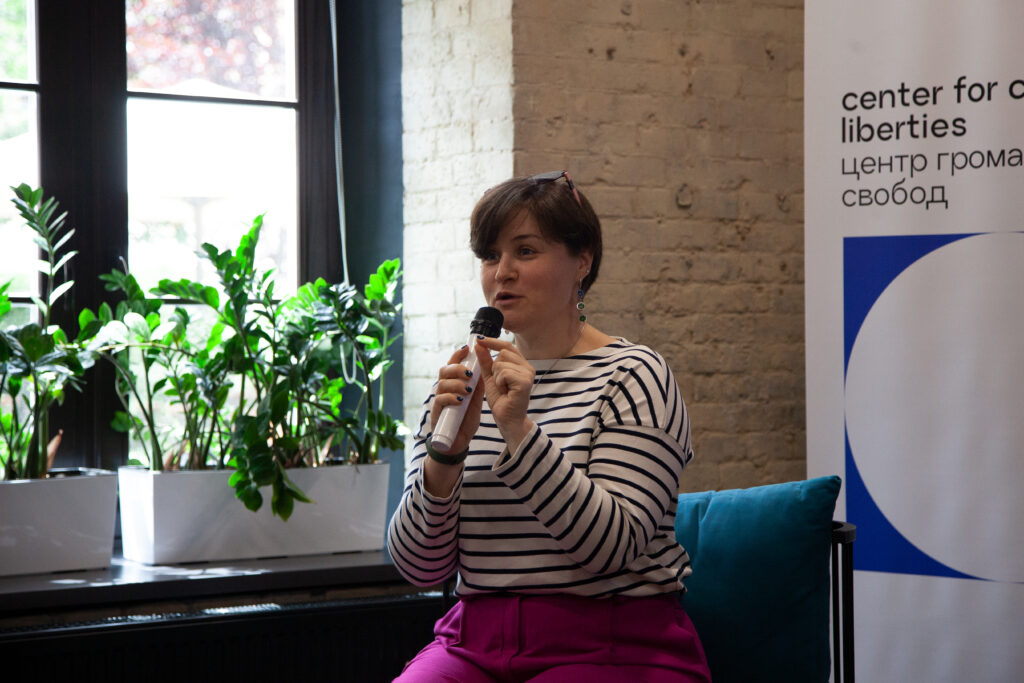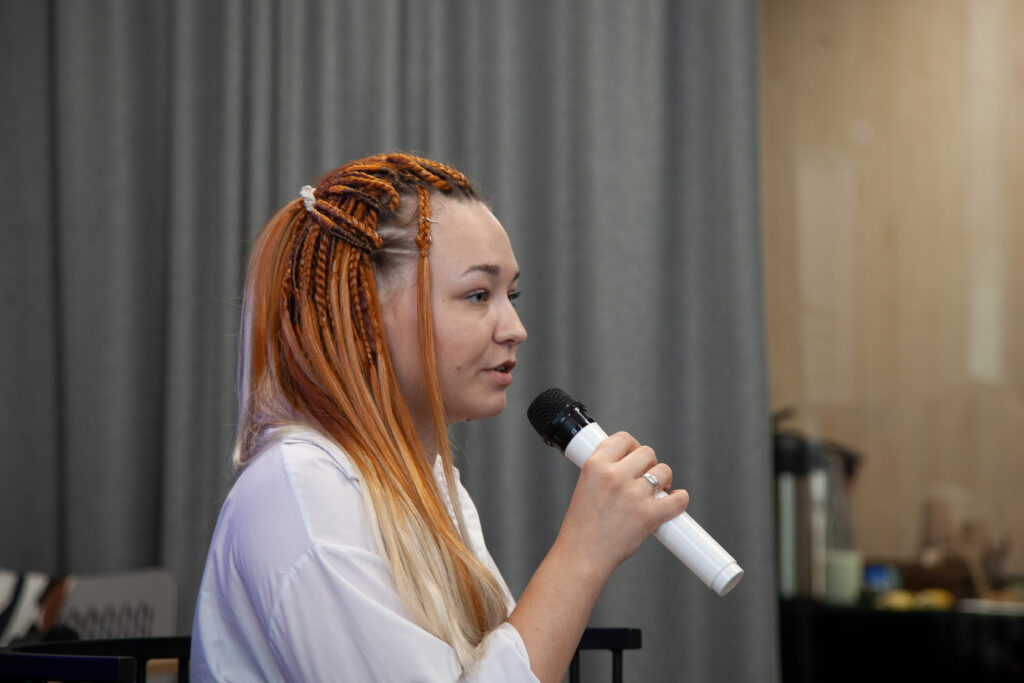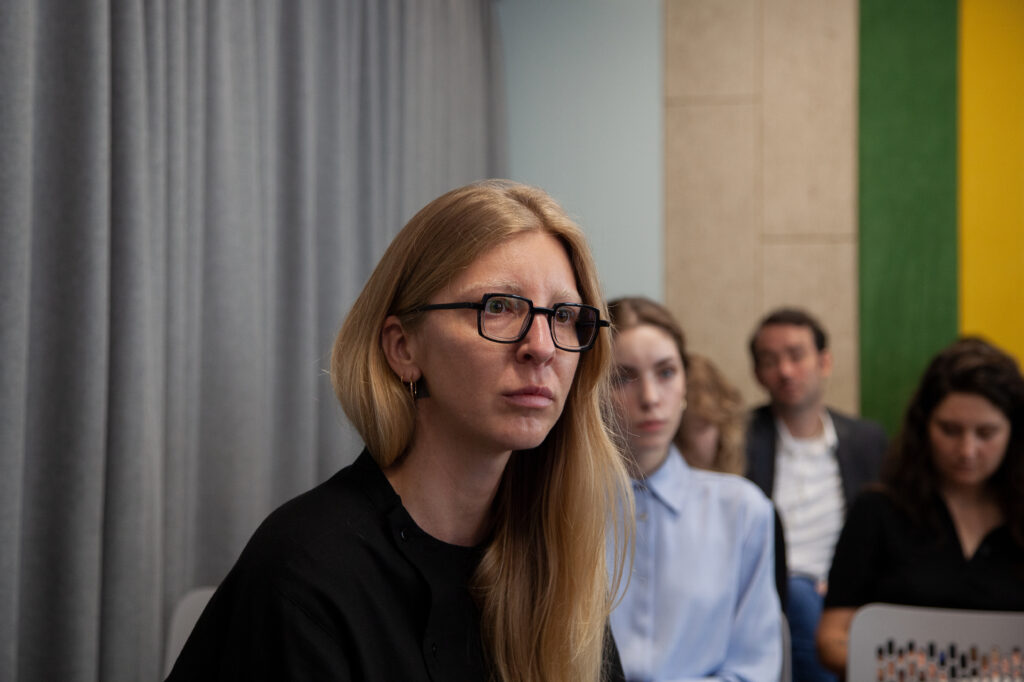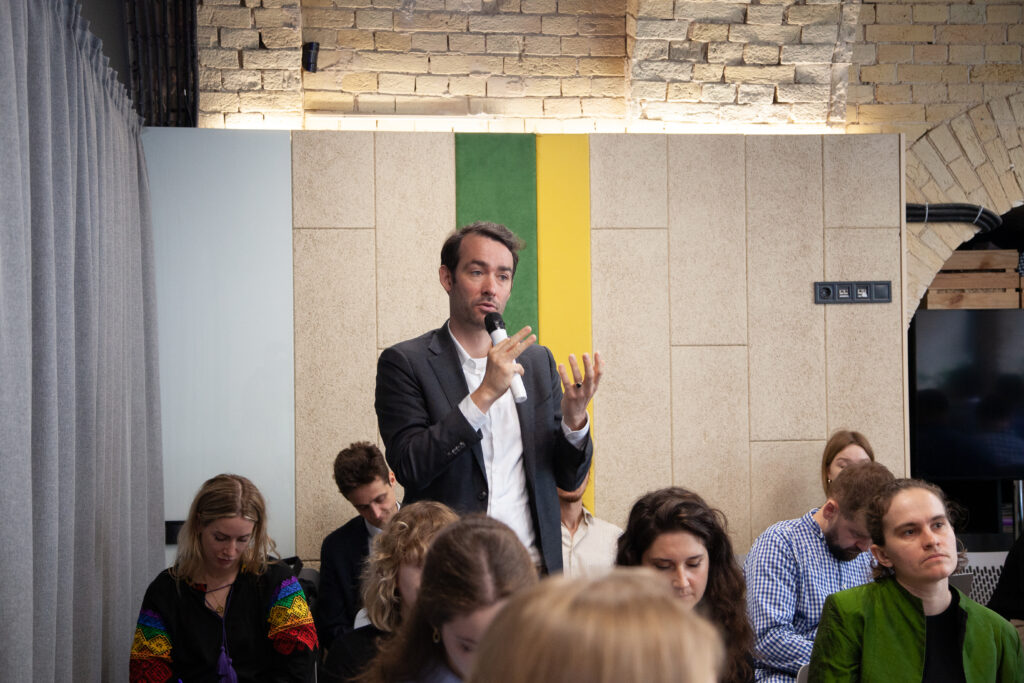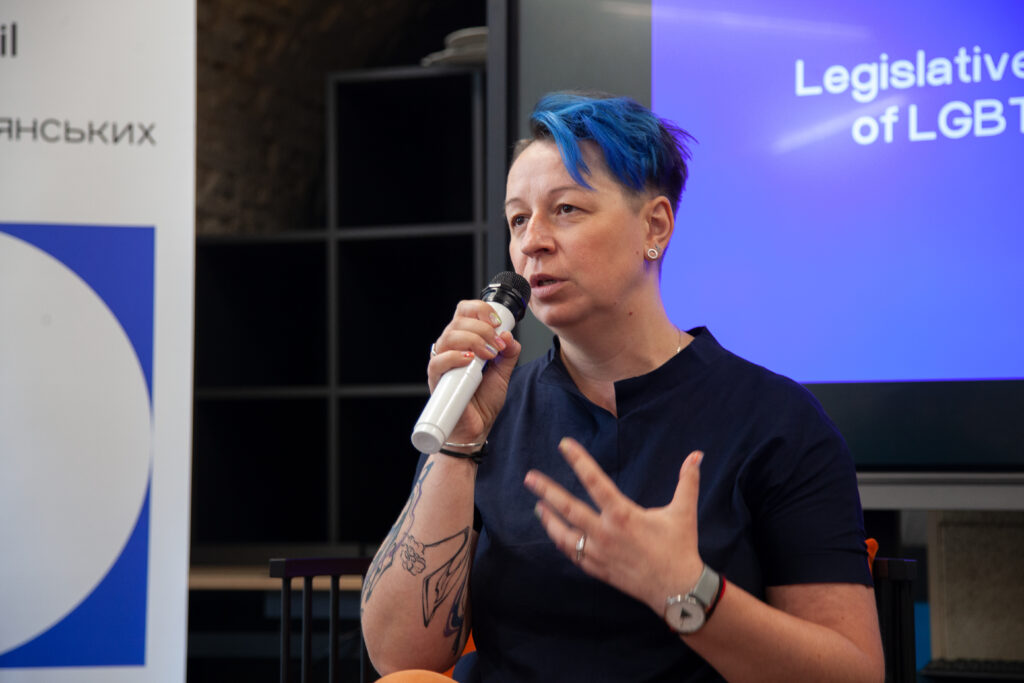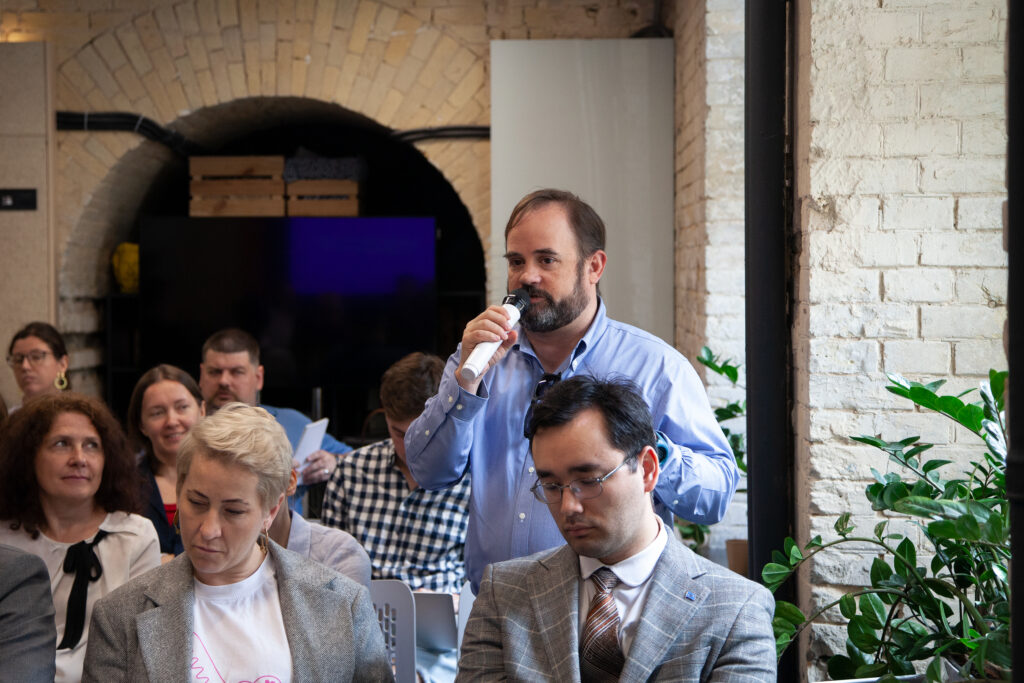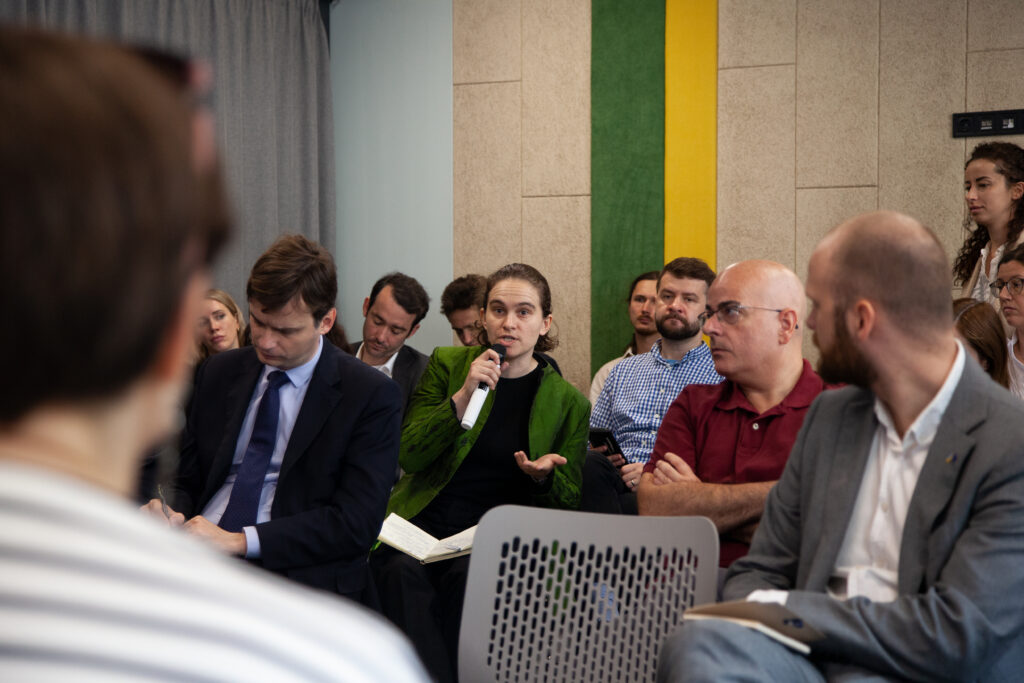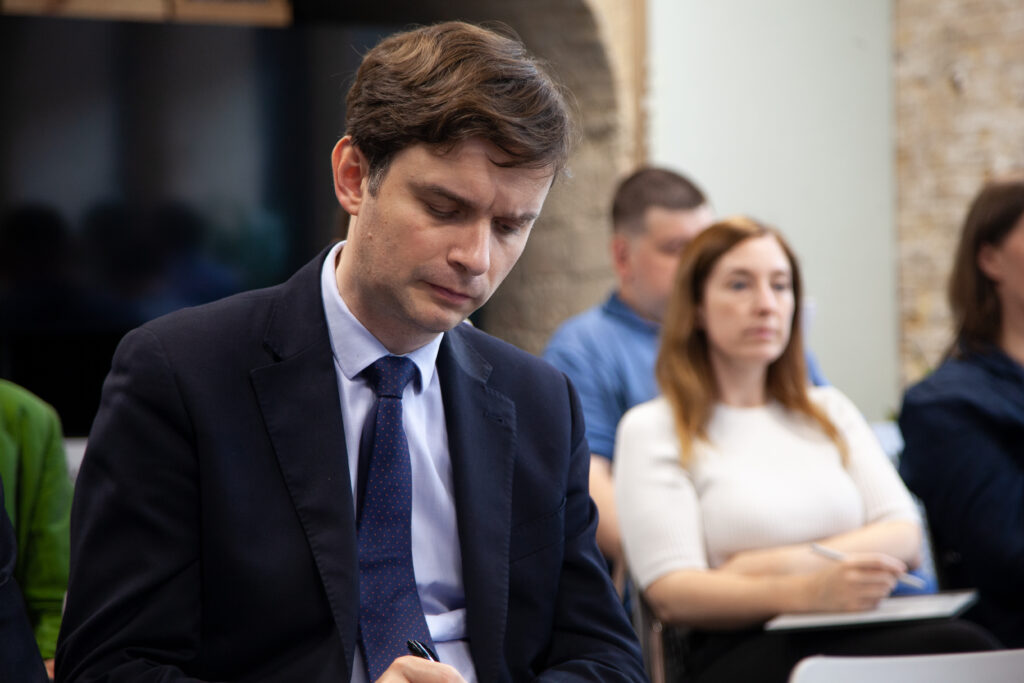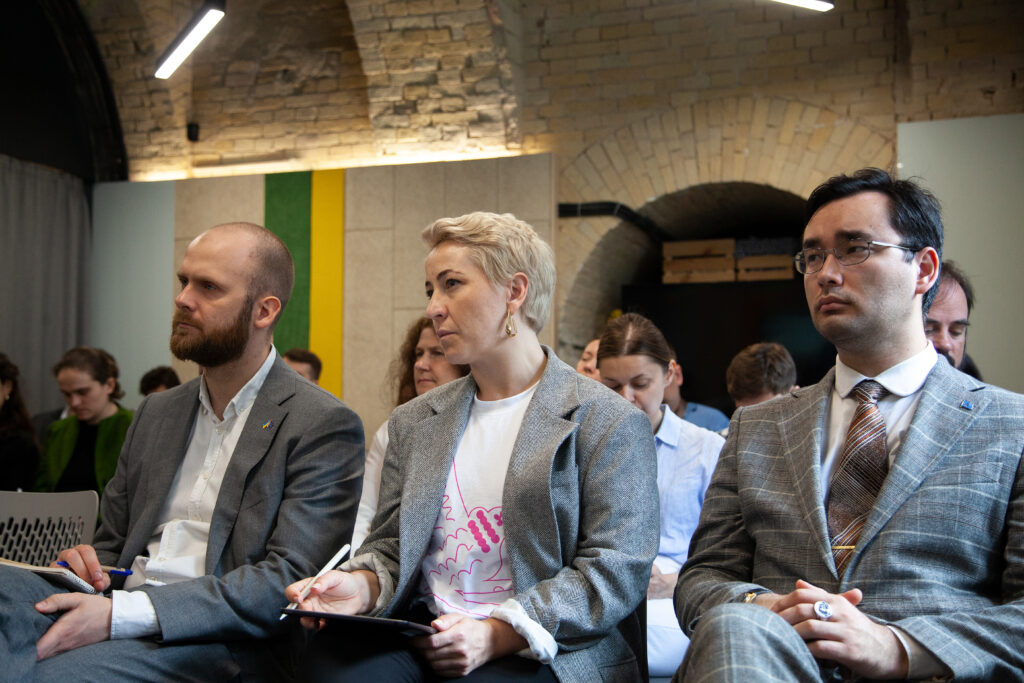«Ukraine should promote the development of human rights protection mechanisms». Discussion about the legislative support for the rights of LGBTQI people in Ukraine
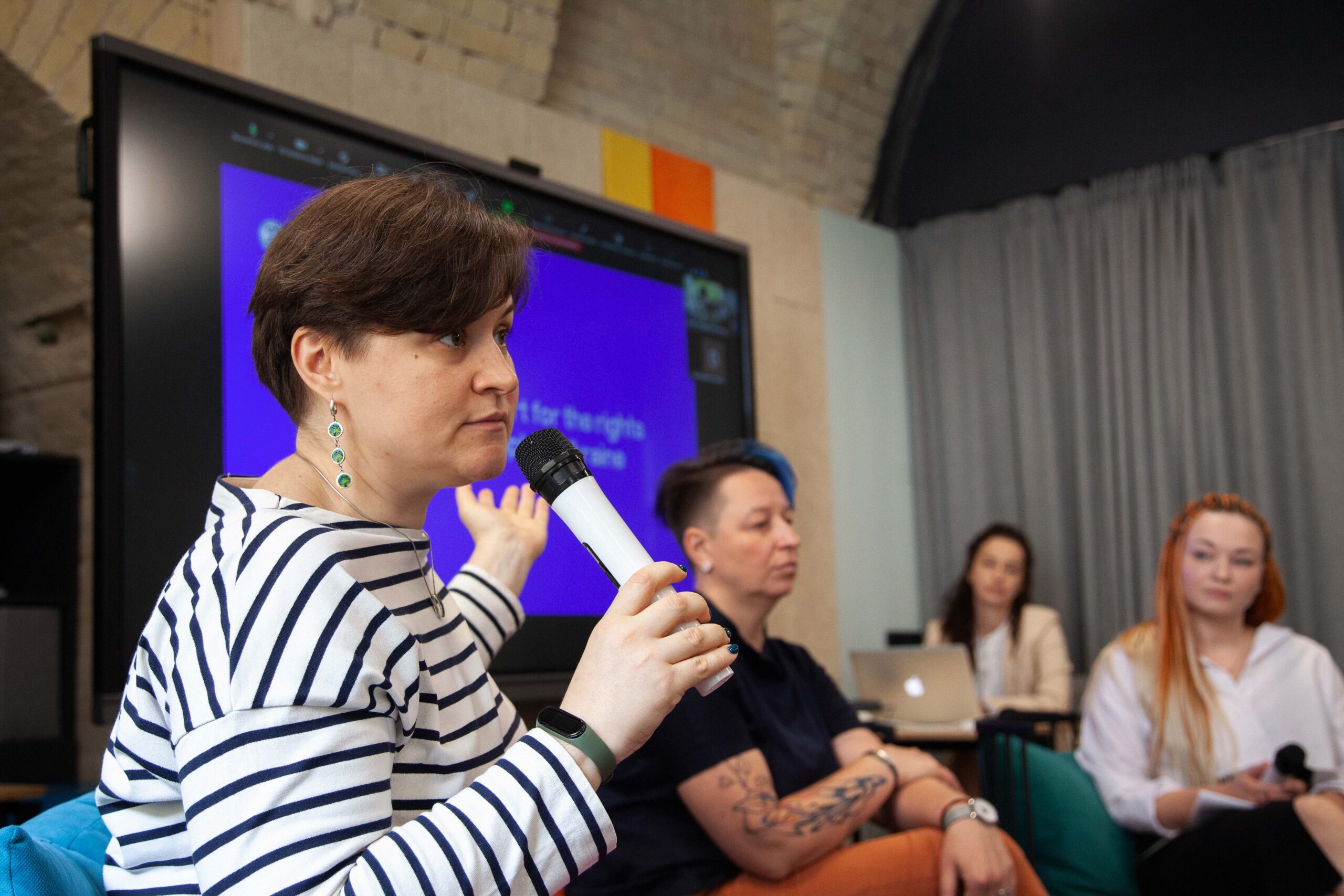
On Monday, June 17th, the Center for Civil Liberties held a panel discussion on «Legislative Support of LGBTIQ People’s Rights in Ukraine» with the support of USAID and PACT. The event aimed to discuss recent and ongoing actions by the Ukrainian government, other state institutions, and NGOs toward achieving full protection of LGBTIQ community rights at the legislative level in Ukraine. Speakers provided examples of current discrimination cases faced by LGBTIQ community representatives every day due to the absence of proper legislative mechanism.
The discussion centered on proposals №9103 and №5488, highlighting the crucial importance of their adoption for Ukraine’s journey toward EU integration. The adoption of these proposals, which aim to fight social stigma and hate speech, is seen as a vital step in aligning Ukraine’s legislative framework with EU standards, facilitating smoother integration, and strengthening the country’s commitment to European values and policies.
The invited speakers, who represent leading Ukrainian LGBTIQ+ organizations, were:
- Hanna Lytvynova, lawyer and physical security expert, Insight NGO;
- Oleh Maksymiak, project manager of Fulcrum UA, GR specialist;
- Khrystyna Karpenko, Media and Communications Officer of Gender Stream NGO.
In addition, the event also was attended by Embassies and Missions representatives.
The panel discussion kicked off with a speech by Hanna Lytvynova, which addressed the difficulties of non-recognition of same-gender marriage.
«From birth, every person has a full set of constitutional rights and duties, regardless of his/her citizenship, sex, social status, sexual orientation or other features. However, as a lesbian, I cannot realize the right to have a family with my partner. This is not only about the right to marry: we cannot have a joint financial account, common real estate, and other shared belongings. These rights are basics which automatically have heterosexual couples after marriage by default.
LGBTIQ+ families do not have legal recognition in Ukraine. It is highly important to push this issue during the full-scale invasion because there are LGBTQI+ people on the frontlines defending our country and risking their lives to protect civil society, their families, and loved ones. Unfortunately, the families of these combatants do not have any rights to receive information about the health of their loved ones, cannot make decisions about medical treatment, receive inheritance after the death of an LGBTQI militant and social guarantees or to dispose of his/her body», — says Hanna.
«In the case of LGBTQ+ military personnel, the issue of their legal rights becomes particularly relevant. They face obstacles in accessing information about their partners’ health, location and cannot make medical decisions. In case of death, their relatives are not entitled to posthumous payments or social benefits. Unlike heterosexual cohabiting couples, who can access such information through civil marriage, LGBTQ+ military couples lack this option», — added Oleh Maksymiak.
Oleh also emphasized the importance of Ukraine’s foreign partners in the process of implementing the draft law and shared the experience of their involvement.
«Civil society is not able to talk to the representatives of ruling parties or the Office of the President of Ukraine, but you, as representatives of partner countries, could push the draft law №9103 into consideration. We have a small request for you to use your connections with our government to remind them that it is vital to adopt a bill about same-gender couples, especially on our path to EU integration.
Three months ago, our organization, along with our partners, initiated a letter. This letter was sent to institutions such as the European Council, the European Commission, the Council of the European Union, all members of the EU Parliament, and all embassies of European Union member states in Ukraine. We requested them to actively push for the adoption of the draft law during the EU membership negotiations».
Khrystyna Karpenko, representing the Gender Stream organization, also gave an overview of bill №4588, which aims to dispel stigma, combat homo- and transphobia, and foster a more inclusive understanding and acceptance of LGBTQI+ individuals in society.
«One of our main focuses is advocating for draft law №5488, which addresses hate crimes. Currently, Ukraine lacks adequate legislation to protect victims of hate crimes, especially within the LGBTQI community. When LGBTQI individuals are attacked or face hate speech or discrimination, there is insufficient legislation to protect them. Even if law enforcement officers are willing to investigate or respond appropriately, they often lack the necessary mechanisms to do so.
To address this issue, we have introduced Bill №5488, which must be passed because it ensures the fair investigation of hate crimes, benefiting not only LGBTQ individuals but also ethnic minorities and other vulnerable groups. Additionally, it fosters cooperation between Ukrainian authorities and civil society, making it a crucial step towards Ukraine’s European integration», — highlighted Khrystyna.
Oleksandra Romantsova, one of the moderators of the panel discussion and Executive Director of CCL, stated that the Center for Civil Liberties analyzes the necessary steps for successful EU integration. She emphasized that this legislation is one of the required steps, supporting the argument for the recovery of the Ukrainian economy.
«With many people leaving Ukraine, our labor market needs specialists who can come from around the world, especially from countries where they have rights for same-sex marriage registration. If we do not have this possibility in Ukraine, it means that we are cutting off these people from the opportunity to come here and help us revive our economy. The same situation applies to law №5488, which means that minorities are still not adequately protected, including migrants from different countries who may look different, have other cultures or religions, or have different sexual orientations», — stated Oleksandra.
Author: Khrystyna Zhevlakova, intern of the Center for Civil Liberties.
This event was organized by Center for Civil Liberties as part of its project implemented under the USAID/ENGAGE activity, which is funded by the United States Agency for International Development (USAID) and implemented by Pact. The contents of this event are the sole responsibility of Pact and its implementing partners and do not necessary reflect the views of USAID or the United States Government.
Center for Civil Liberties operates with the support of the European Union.

